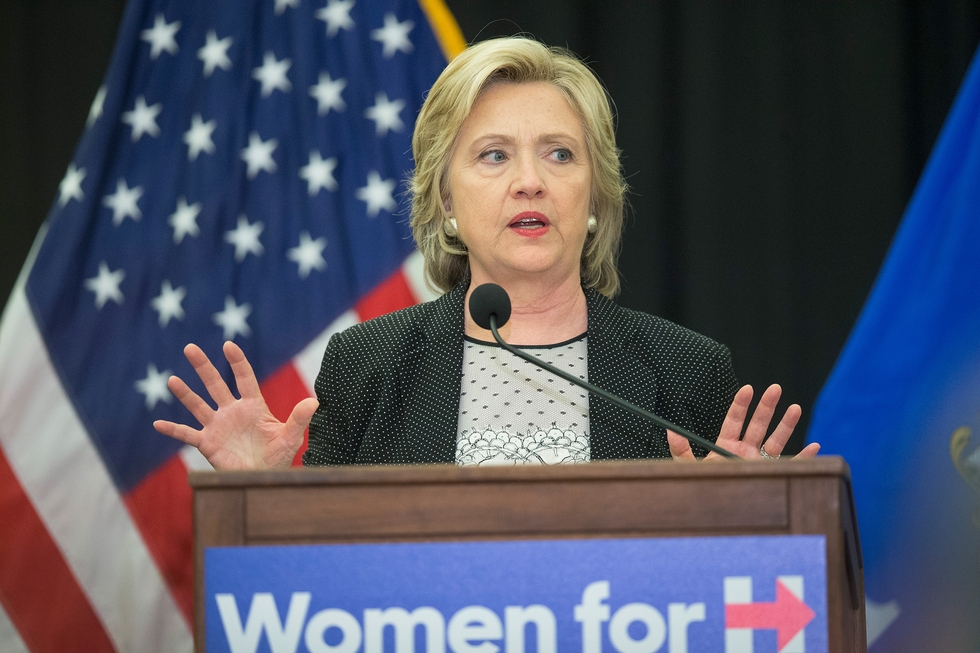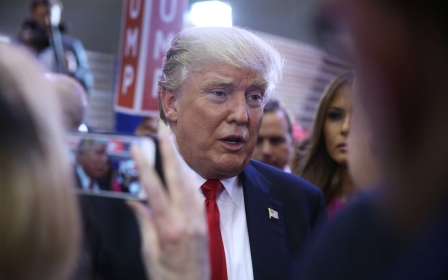Trump and Clinton stay on course for White House showdown

Frontrunners Donald Trump and Hillary Clinton each took a big step closer to confirming their party nominations for November's US presidential election with key victories in the latest round of US primary contests on Tuesday.
Trump's decisive victory in the Republican primary in Florida also prompted one of his main rivals Marco Rubio, a senator from the southern state, to drop out of the race.
The outspoken businessman, who has drawn condemnation from senior figures within his own party over his anti-Muslim and anti-immigrant rhetoric, also picked up wins in North Carolina and Illinois, but suffered defeat to local governor John Kasich in Ohio.
Clinton asserted her dominance of the Democratic nomination contest with four victories in Florida, Ohio, Illinois and North Carolina, although a fifth state, Missouri, remained too close to call between Clinton and Bernie Sanders, her left-wing opponent, early on Wednesday morning, according to US media projections.
The results mean Trump now has 621 of the 1,237 delegates he needs to confirm his nomination at the Republican party convention later in the year, with his nearest rival Ted Cruz on just 396.
Clinton has at least 1,561 of the 2,383 delegates she needs, with Sanders trailing on 800.
"This was an amazing evening," a buoyant Trump told supporters. "We're going to win, win, win and we're not stopping."
Trump's controversy-fuelled campaign, which has included stating in a debate last week that Muslims hate the US, has caused concern among senior Republicans and conservatives who have raised concern about whether the property tycoon-turned-TV star is fit to be president.
The US political website Politico reported on Tuesday that leading conservatives planned to meet in Washington on Thursday to discuss whether to run a third-party candidate to stop Trump.
'Wrong, not strong'
Clinton appears to face a run-up to November's election, with Sanders unlikely to muster the numbers required in the remaining primaries to sustain his challenge for long.
"We are moving closer to securing the Democratic party nomination and winning this election in November," said Clinton, looking ahead to the general election and setting her sights on Trump.
"When we hear a candidate for president call for rounding up 12 million immigrants, banning all Muslims from entering the United States - when he embraces torture, that doesn't make him strong. It makes him wrong."
US President Barack Obama, who defeated Clinton for the Democratic nomination in 2008, also appeared to take aim at Trump on Tuesday in comments to lawmakers.
"We have heard vulgar and divisive rhetoric aimed at women and minorities - at Americans who don’t look like 'us,' or pray like 'us,' or vote like we do," he said.
"This is also about the American brand. Who are we? How are we perceived around the world? The world pays attention to what we say and what we do."
Clinton, who was Obama's secretary of state from 2009 to 2013, has presented herself as slightly more hawkish than the current president in foreign policy terms and has called for a no-fly zone in Syria.
Sanders opposes a no-fly zone, and has also called for a broad coalition of Muslim-majority countries including Iran and Saudi Arabia to fight against the Islamic State (IS) group. Clinton has called such a coalition unviable, noting the widening rift between Sunni-led Saudi and Shia-led Iran.
The Vermont senator has also openly expressed a dislike for Israeli Prime Minister Benjamin Netanyahu, but he has otherwise taken a mainline Democratic view of the Israeli-Palestinian conflict, calling for a two-state solution.
Both candidates have been vocal about welcoming Syrian refugees and decrying Islamophobia.
Among the Republicans, Trump has called for a temporary ban on all Muslims from entering the US while Cruz, his closest rival, has opposed accepting Syrian refugees, with the exception of Christians who have been persecuted by IS.
New MEE newsletter: Jerusalem Dispatch
Sign up to get the latest insights and analysis on Israel-Palestine, alongside Turkey Unpacked and other MEE newsletters
Middle East Eye delivers independent and unrivalled coverage and analysis of the Middle East, North Africa and beyond. To learn more about republishing this content and the associated fees, please fill out this form. More about MEE can be found here.




